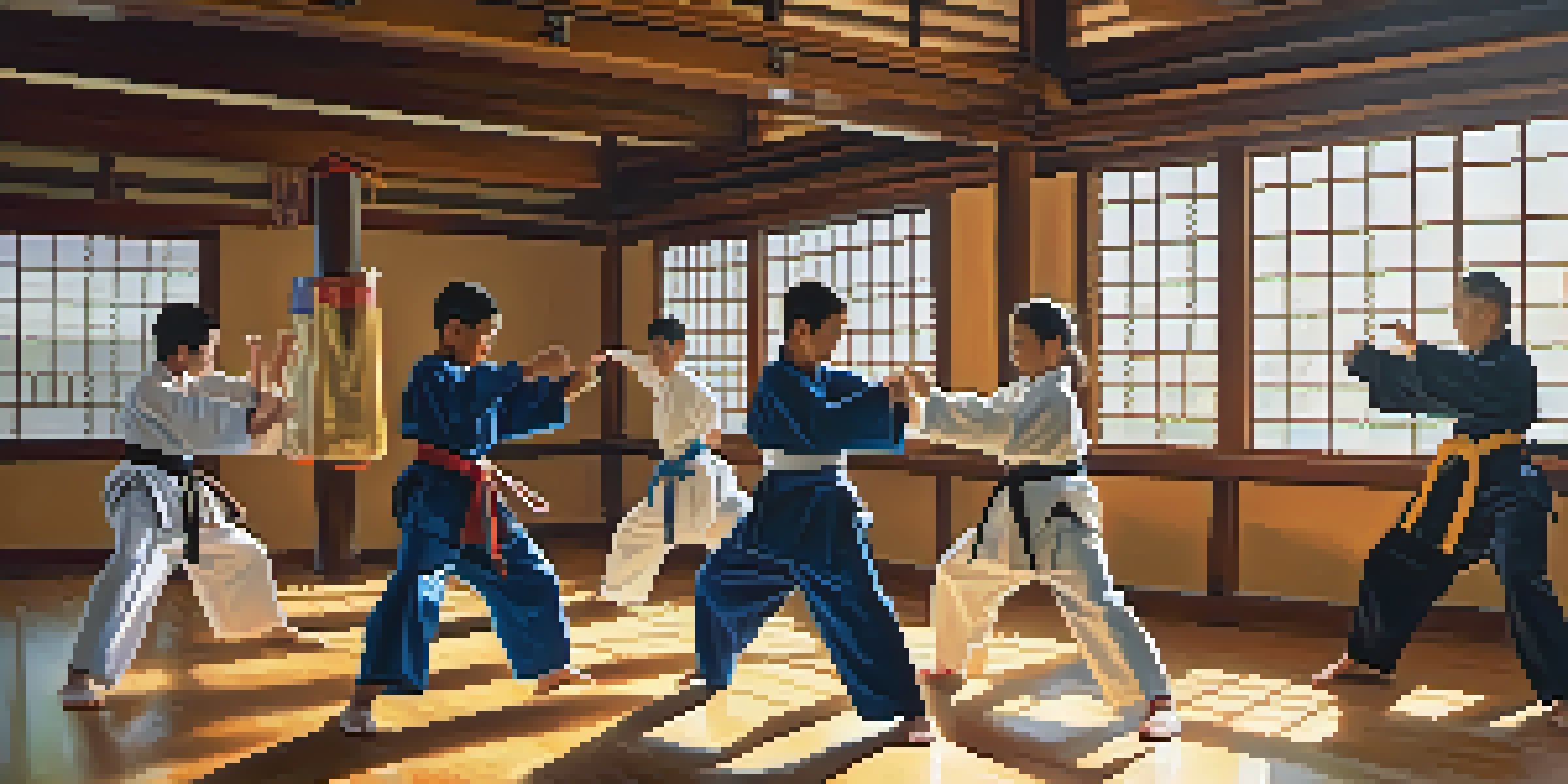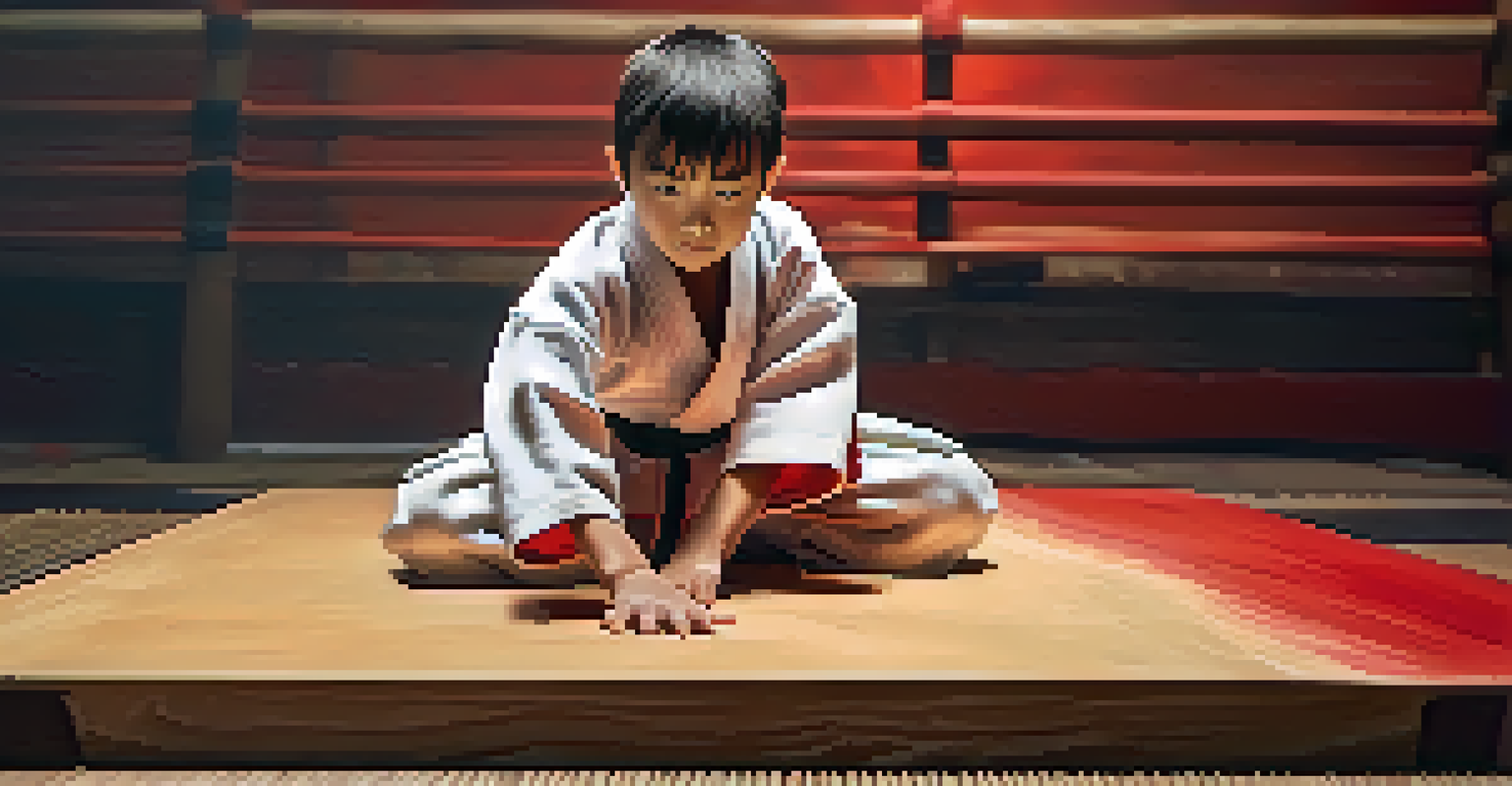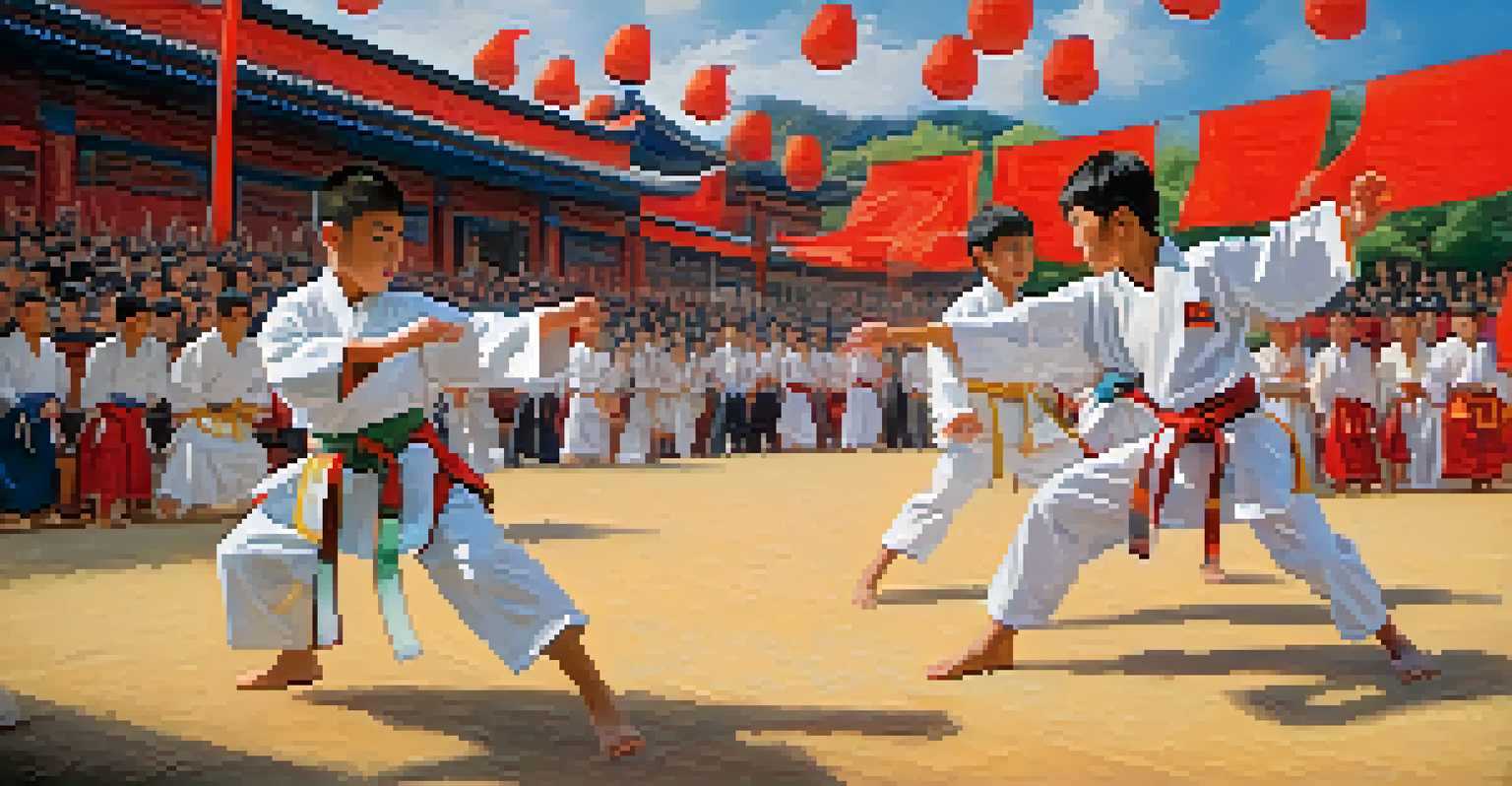The Role of Martial Arts in Global Youth Culture Today

Martial Arts: A Universal Language for Youth
Martial arts serve as a common ground where youth from diverse backgrounds can connect. Regardless of cultural differences, the principles of discipline, respect, and perseverance resonate universally. For many young people, engaging in martial arts classes fosters a sense of belonging and community.
Martial arts are about the spirit of the individual and the strength of the community.
These practices create a platform for friendships that might not have formed otherwise, bridging gaps that societal differences often impose. In a world where social media dominates communication, martial arts offer a refreshing alternative that emphasizes face-to-face interaction and teamwork. This shared experience can lead to long-lasting relationships built on mutual respect.
Moreover, martial arts provide a way for youth to express themselves physically and emotionally. As they learn various techniques and forms, they also discover their own capabilities and limits, cultivating self-esteem and confidence in the process.
Empowerment Through Discipline and Focus
One of the core tenets of martial arts is discipline, which can profoundly impact a young person's life. By committing to regular practice, students learn the importance of dedication and hard work. This lesson often transcends the dojo or training hall, influencing their academic and personal lives as well.

Focus is another crucial element that martial arts instill in young practitioners. The ability to concentrate on a task, whether it’s perfecting a kick or achieving a new belt rank, translates into improved academic performance and better decision-making skills. This heightened sense of focus can be a game-changer for adolescents navigating a world full of distractions.
Martial Arts Foster Community
Martial arts create a sense of belonging and friendships among youth from diverse backgrounds.
In essence, martial arts empower youth by equipping them with tools that enhance their everyday lives. The lessons learned on the mat foster a strong work ethic and a goal-oriented mindset, preparing them for future challenges.
Cultural Exchange and Global Connectivity
Martial arts are not confined to their country of origin; they’ve evolved into a global phenomenon. As styles like Brazilian Jiu-Jitsu, Taekwondo, and Muay Thai gain popularity worldwide, they also promote cultural exchange. Young practitioners often find themselves incorporating elements from various martial arts, creating a rich tapestry of styles and philosophies.
The more you know yourself, the more you can understand others.
This blending of cultures fosters curiosity and respect for different traditions. Through competitions and seminars, youth can travel internationally, exposing themselves to diverse ways of life and fostering friendships across borders. This global connectivity is particularly vital in a time when cultural understanding is more important than ever.
As youth engage with martial arts from different cultures, they not only gain skills but also develop a broader perspective on the world. This cultural appreciation can lead to a generation more inclined to embrace diversity and promote inclusivity.
Mental Health Benefits of Martial Arts
In recent years, the mental health benefits of martial arts have gained recognition, especially among youth. Physical activity, combined with the mindfulness inherent in many martial arts practices, helps alleviate stress and anxiety. For adolescents facing the pressures of school and social life, this outlet can be a lifesaver.
The meditative aspects of martial arts, such as breathing techniques and mindfulness training, encourage young people to connect with their inner selves. By focusing on their mental state, students learn to manage emotions and cultivate resilience. This is particularly important in a world where mental health issues are increasingly prevalent among young individuals.
Discipline Builds Life Skills
The discipline and focus learned in martial arts positively influence students' academic and personal lives.
Ultimately, martial arts can serve as a holistic approach to mental wellness, promoting emotional stability alongside physical fitness. This balance is crucial for developing well-rounded individuals capable of handling life's challenges.
Self-Defense: A Vital Skill for Empowerment
For many youths, martial arts training offers practical self-defense skills, empowering them to feel safer in their environments. Learning self-defense techniques not only equips practitioners with tools to protect themselves but also boosts their confidence in various situations. This sense of security can significantly enhance a young person's overall well-being.
Moreover, the confidence gained from mastering self-defense techniques often leads to improved social interactions. Young practitioners may feel more comfortable asserting themselves in challenging situations, reducing the likelihood of bullying or victimization. This transformation can have a ripple effect, positively impacting their social circles.
In a world where safety concerns are prevalent, martial arts provide a proactive approach to personal safety. This empowerment through self-defense is an invaluable aspect of youth training, contributing to their growth as confident individuals.
Community Building Through Martial Arts
Martial arts schools often function as community hubs, bringing together individuals of all ages and backgrounds. These dojos and gyms create a sense of family, where students support each other in their journeys toward mastery. This community aspect fosters camaraderie, encouraging youth to work together and celebrate each other’s successes.
Events such as tournaments and exhibitions further strengthen these bonds. Young athletes have the opportunity to showcase their skills, cheer on their peers, and engage with others who share their passion. This sense of belonging is especially important for adolescents who may struggle to find their place in traditional social settings.
Cultural Exchange Through Training
Martial arts promote global connectivity and cultural appreciation among young practitioners.
As a result, martial arts cultivate leadership skills and community involvement among youth. Many practitioners become mentors to younger students, fostering a cycle of support and encouragement that extends beyond the training floor.
Martial Arts in Popular Culture and Media
The influence of martial arts in popular culture cannot be overstated. Movies, television shows, and video games featuring martial arts heroes inspire youth to take up these disciplines, often romanticizing the journey of becoming a martial artist. This media representation can spark interest and enthusiasm among young audiences.
Furthermore, social media platforms are filled with martial arts content, showcasing impressive techniques and personal stories of transformation. Youth are drawn to these narratives, many of which highlight perseverance and personal growth. This virtual community can motivate them to get involved in martial arts, igniting a passion that transcends screens.

As popular culture continues to celebrate martial arts, it shapes perceptions and encourages youth to explore these practices. This ongoing dialogue between martial arts and media reinforces a positive image, making martial arts more accessible and appealing to the younger generation.